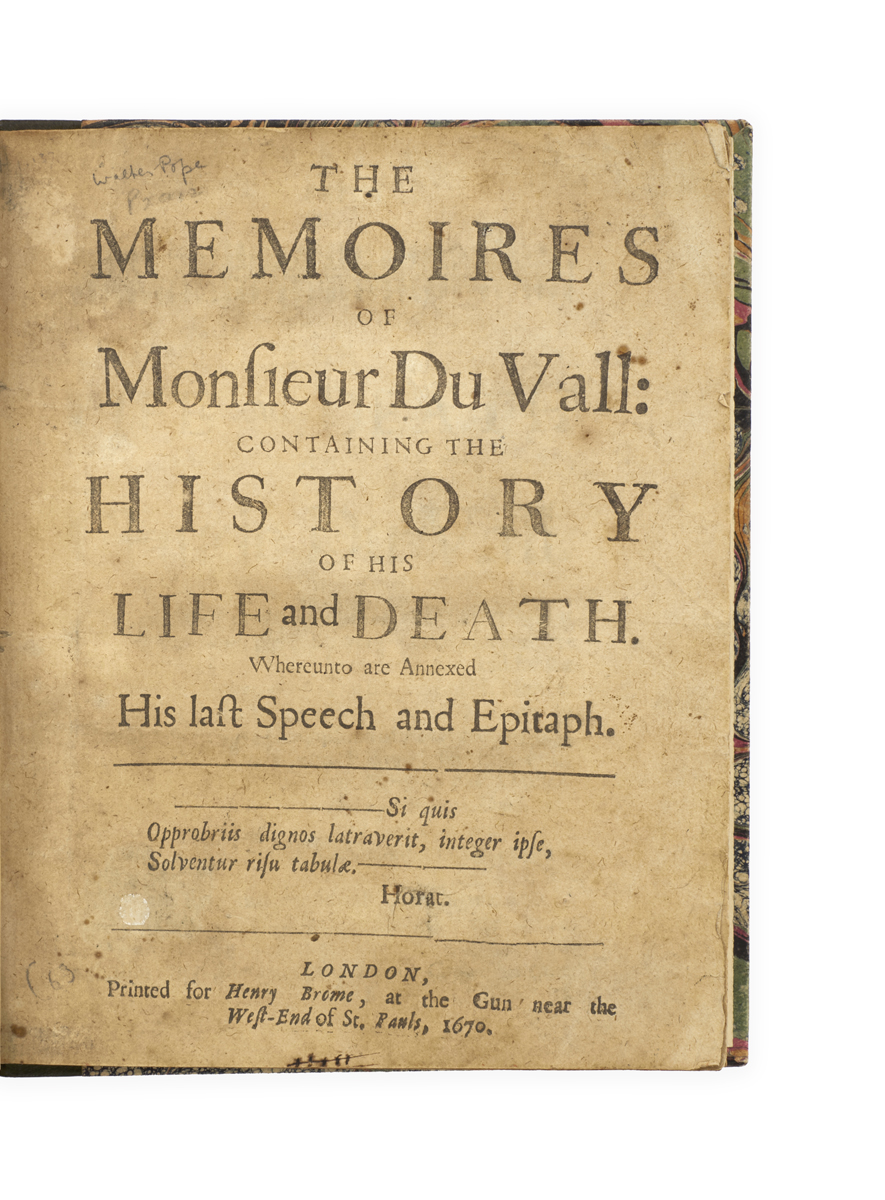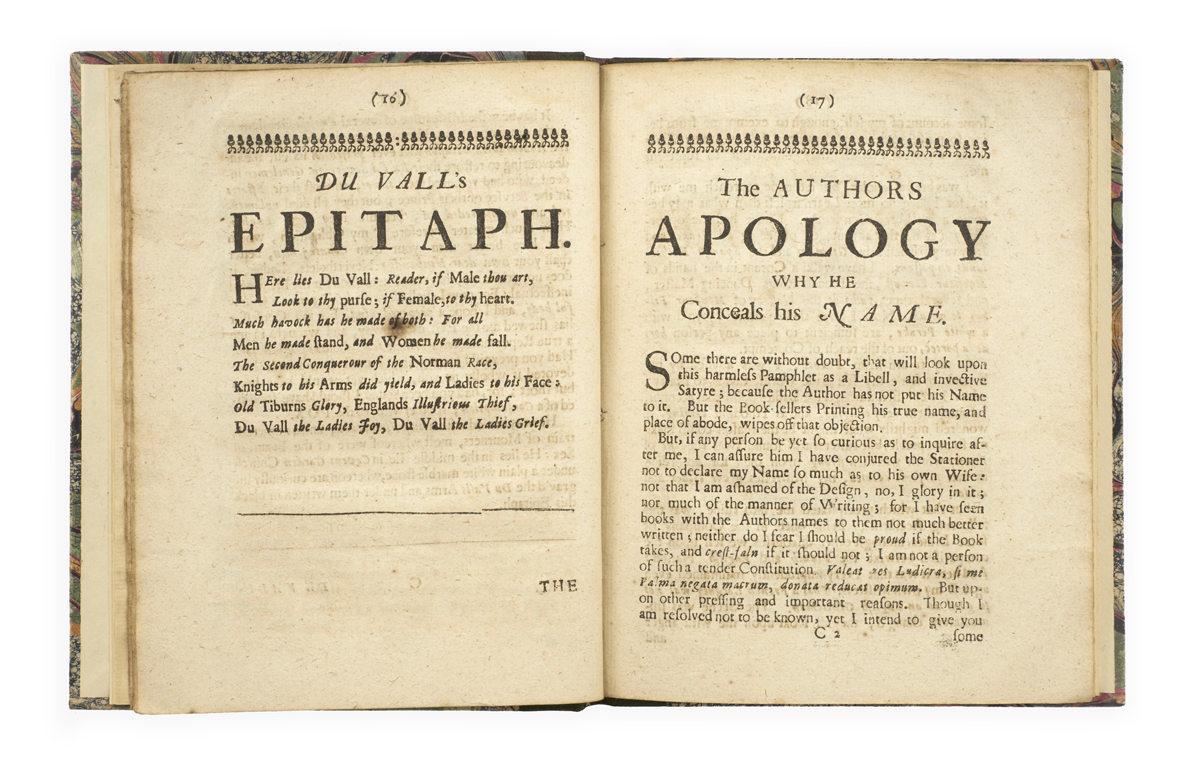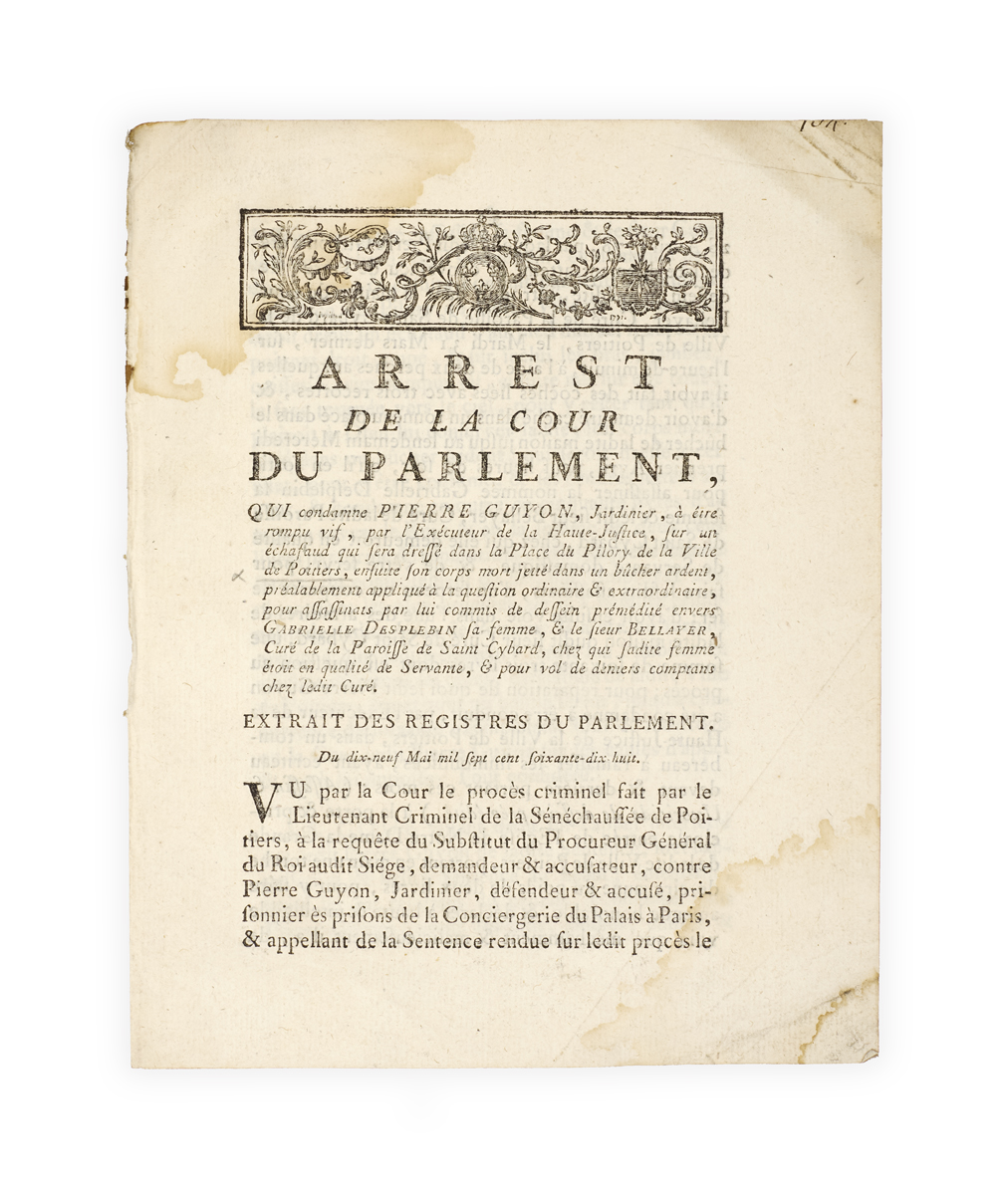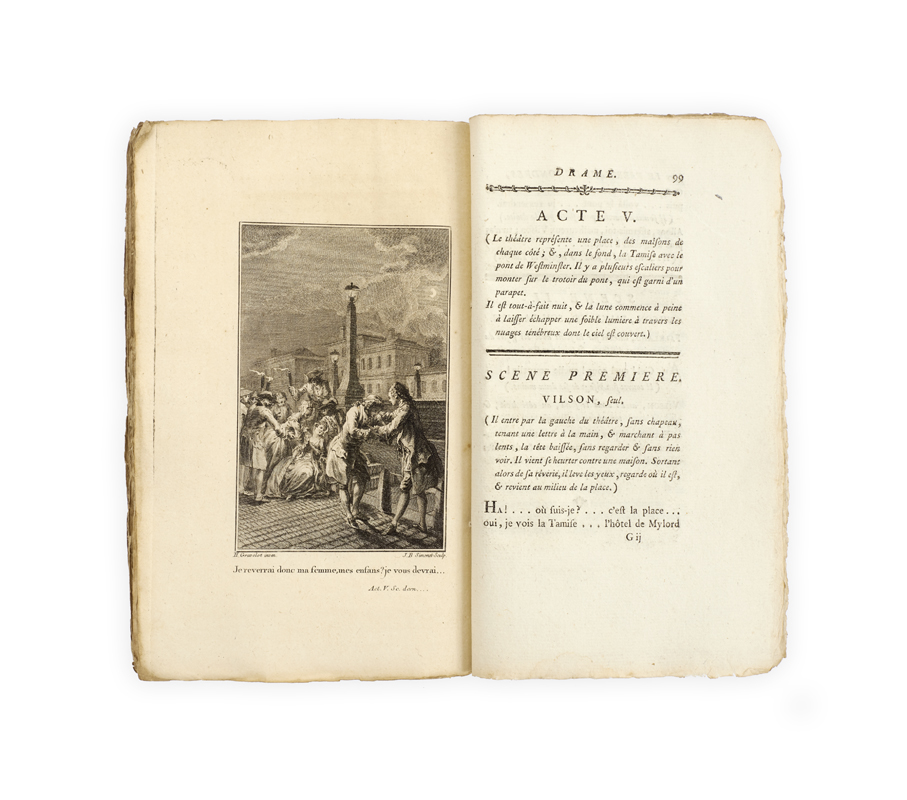

THE GENTLEMAN HIGHWAYMAN
[POPE, Walter.]
The Memoires of Monsieur Du Vall: containing the history of his Life and Death. Whereunto are annexed his last Speech and Epitaph …
London, Printed for Henry Brome … 1670.
4to, pp. [2], 21, [1]; first and last pages somewhat dusty, paper flaw in blank margin of A4, else a good copy in modern green quarter morocco.

Added to your basket:
The Memoires of Monsieur Du Vall: containing the history of his Life and Death. Whereunto are annexed his last Speech and Epitaph …
First(?) edition of a partly fictitious and often satirical life of the highwayman Claude Duval, published shortly after his execution in 1670. This is the more substantial of two opportunistic biographies, between them the main sources of information about him, though by no means entirely trustworthy.
Apparently born in Normandy, Duval appeared in England shortly after the Restoration. ‘There are some that confidently averr that he was born in Smock-Ally without Bishopsgate; that his Father was a Cook, and sold boyled Beef and Pottage: But this report is as false, as it is defamatory and malicious … If he had been born there he had been no Frenchman, but if he had not been a Frenchman, ’tis absolutely impossible he should have been so much beloved in his life, and lamented in his Death, by the English Ladies’. Pope takes the opportunity for an extended satire on French manners (and their effect on English womanhood): ‘The Memoires, which became the source for all later accounts of Duval’s life, provided plentiful detail to substantiate his reputation as the debonair, gentlemanly highwayman … But the stories told in The Memoires are best read as filtered through the invention and satirical purpose of the author’ (Oxford DNB).
With a price on his head and most of his gang already in custody, Duval was eventually apprehended on Christmas Eve 1669, while drunkenly celebrating a successful heist. ‘There were a great Company of Ladies, and those not of the meanest Degree, that visited him in Prison, interceded for h[i]s Pardon, and accompanied him to the Gallows’. After his death, he lay in state at the Tangier Tavern, ‘the Room hung with black cloath … eight wax Tapers burning, as many tall Gentlemen with long black Cloaks attending’. ‘Duval remains a figure more of literary invention than of history’ (Oxford DNB) – shortly afterwards, Samuel Butler published a mock-epic in memoriam. In the nineteenth century Harrison Ainsworth hoped to follow up the success of his highwayman novel Rookwood (1834), which featured Duval in passing, with the never-published Claude Du Val; in the end Duval featured heavily in his late novel Talbot Harland (1870).
Four editions of the Memoires were printed in 1670, all for Henry Brome, the others paginated pp. 16 or pp. 19. Wing P 2912.

